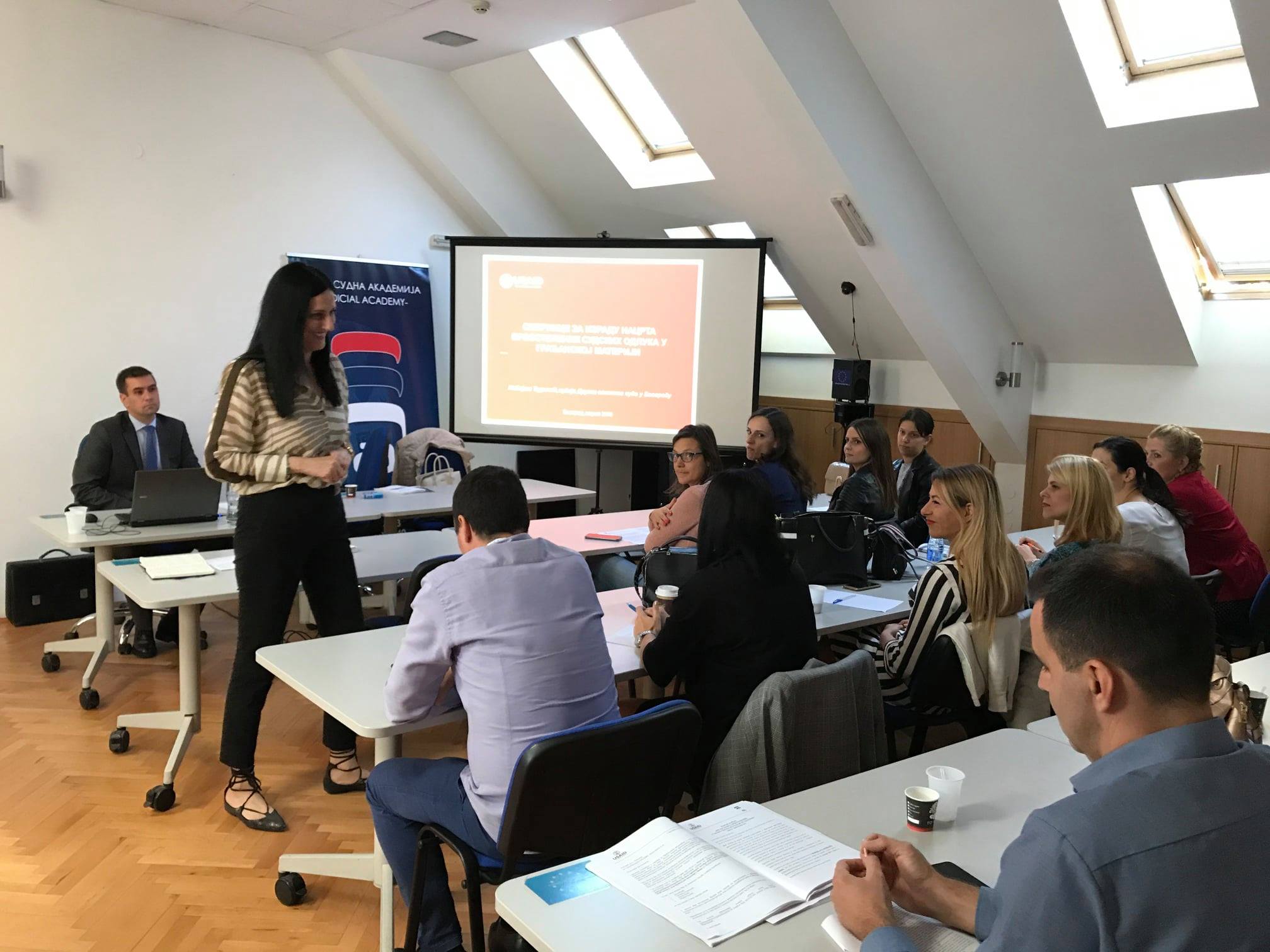Building Capacities of Judicial Assistants in Serbia to Better Support Judges
13.12.2019
Serbia

Judicial assistants – to the uninitiated, it is more than 1500 people responsible for everyday efficient operations of the Serbian courts. They are highly educated, have passed the bar, and provide help to judges by drafting decisions, while also often handling certain types of cases themselves, for example probate cases.
Although they share the responsibility for the efficiency and quality of the judiciary, they are not in a particularly good position. According to the law, they are public servants, while in practice their positions differ greatly due to a wide variety of duties they are assigned with, the rank and jurisdiction of the court they work in, and unequal opportunities for career development, which all results in underutilizing their potential.
To add to this, judicial assistants do not have proper opportunities for continuous professional education which is of utmost importance as laws and regulations change constantly. Training specifically targeting judicial assistants is infrequent and rarely tailored to their needs. For the most part, they participate in training sessions intended for judges.
One of the goals of our USAID Rule of Law Project in Serbia concerns particularly the improvement of the position of the judicial assistants. Apart from the draft platform for advancing their status and career path, which the Project developed through a comprehensive process of consultations with the stakeholders in the High Court Council and the Ministry of Justice, as well as the judicial assistant themselves, the Project delivered several rounds of both basic and advance training on legal reasoning and drafting.
In total, the Project trained over 400 judicial assistants in the course of two years. The basic legal drafting course, delivered in 2018, was touching upon drafting first instance decisions in civil procedure, with an overview of the representative decisions of the European Court of Human Rights and quoting them in first instance decisions. The advance course, delivered in 2019, involved more practical engagement from the participants and interaction with lecturers on concrete issues. The training participants were to prepare a properly justified first-instance judicial decision, on the basis of input previously received, and submit it to the lecturers to be discussed and reviewed during the training.
According to the lecturers, and they were unanimous in that, training participants were motivated and satisfied with this type of training. Even though the trainers had some initial doubts whether judicial assistants will find it in themselves to complete course homework in addition to their daily work, these were soon dissipated as all course participants deliver their tasks and were very interested in gaining feedback from the trainers.